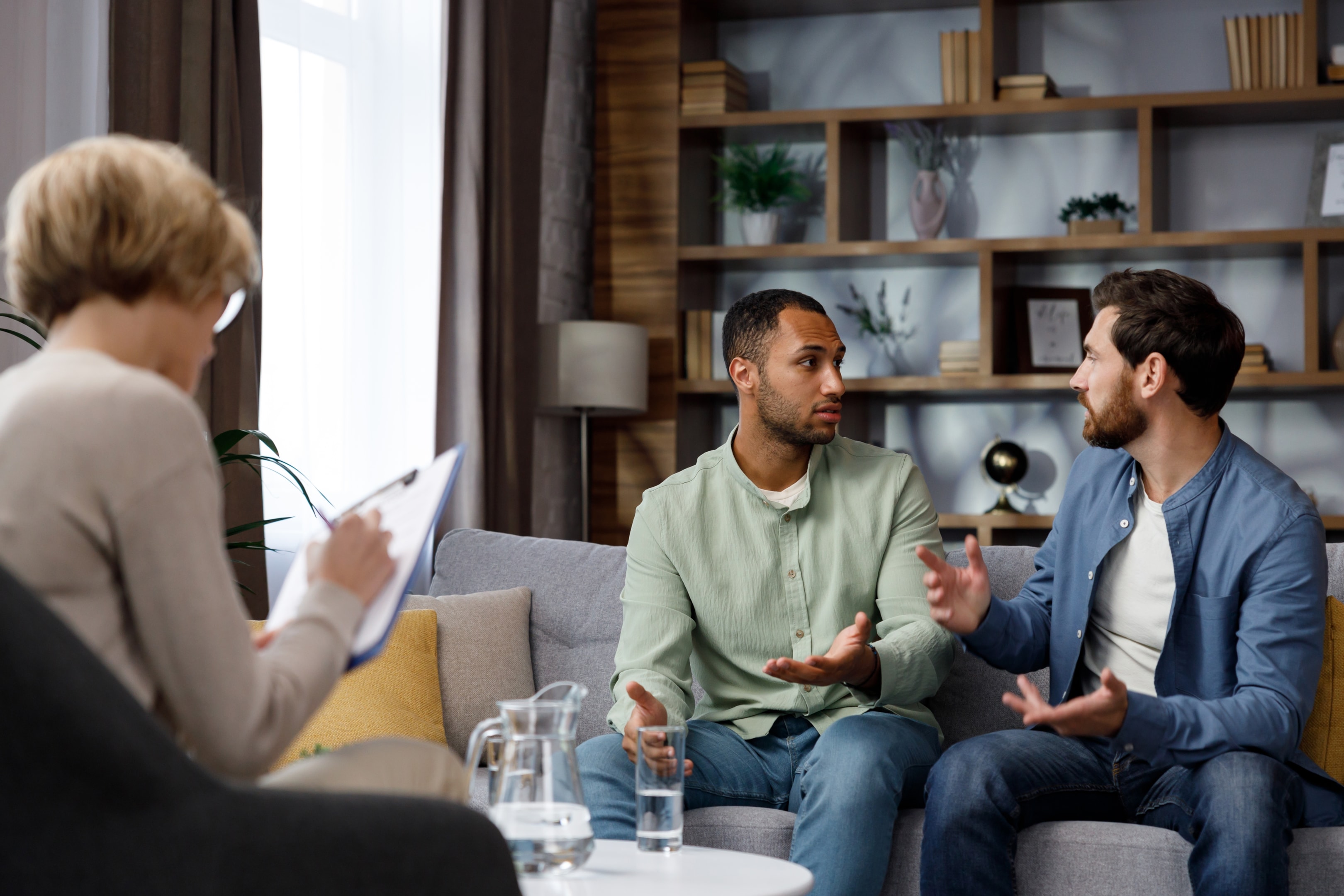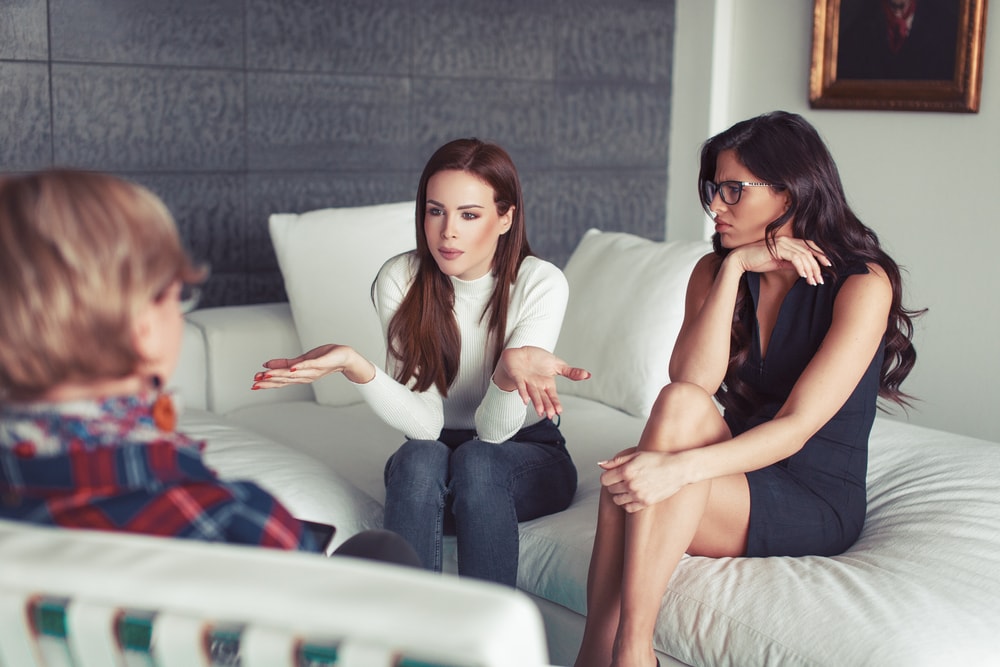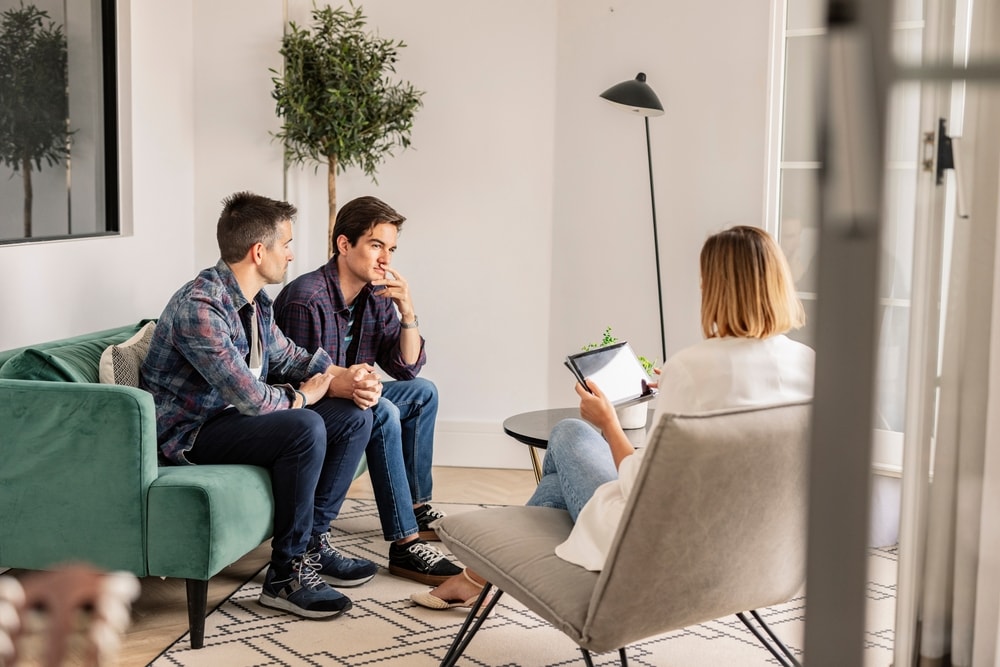Need LGBTQ couples therapy in Los Angeles? Learn what to expect from LGBTQ couples therapy in Los Angeles, how to find supportive therapists, including those with associate marriage credentials, and the benefits of specialized therapy for LGBTQ couples. Consider exploring LGBTQ Couples Therapy Los Angeles to enhance your experience.
Key Takeaways
-
LGBTQ couples therapy provides a safe and validating environment to address unique relationship challenges, promoting self-discovery and mutual understanding.
-
Choosing an LGBTQ-friendly, licensed marriage therapist is crucial for effective therapy; ensure they have experience with LGBTQ issues and a supportive approach.
-
Success stories from couples highlight the transformative power of therapy in enhancing communication, vulnerability, and resilience in relationships.
Understanding LGBTQ Couples Therapy in Los Angeles
LGBTQ couples therapy focuses on providing a safe and inclusive environment tailored to the unique needs of LGBTQ+ couples. This specialized form of therapy recognizes the distinct challenges faced by LGBTQ individuals and couples, creating a space where they can explore their relationship dynamics without fear of discrimination or judgment.
Therapists in Los Angeles create a validating space for LGBTQ couples, emphasizing that their love and relationship challenges are legitimate and worthy of support. This environment allows couples to delve into their unique issues, including gender identity, sexual orientation, and the process of coming out. Discussing these topics helps couples in their journey of self-discovery and mutual understanding. In addition to couples therapy, many therapists also offer family therapy to address broader family dynamics and challenges.
For many, therapy has been a transformative experience. Take Brian, for example, who found solace in knowing that his relationship challenges were acknowledged and supported. This validation can be a powerful tool in strengthening a couple’s bond and helping them navigate their unique journey together, especially when they reach a breaking point. Relationship counseling can also provide additional support during these times, as can relationship counselors.
What is Couples Therapy?
Couples therapy, also known as couples counseling, is a collaborative process where partners work together with a trained therapist to address and resolve relationship challenges. This form of therapy aims to improve communication, intimacy, and overall relationship satisfaction. Whether dealing with issues like communication problems, infidelity, or financial stress, or simply looking to strengthen their bond, couples can benefit significantly from this therapeutic approach. By identifying and addressing underlying issues, couples therapy helps partners build a stronger connection and navigate their relationship challenges more effectively.
Finding LGBTQ-Friendly Therapists in Los Angeles
The success of couples therapy hinges on finding the right therapist. In Los Angeles, look for a professional specializing in couples therapy with experience in LGBTQ issues. This ensures that the therapist understands the unique challenges faced by LGBTQ couples and can provide the necessary support and guidance.
Comfort with your therapist ensures a good fit for your needs. Ask about their experience with LGBTQ issues and qualifications as family therapists in LGBTQ-affirmative therapy. This can help you feel more secure in your treatment and build a trusting relationship with your therapist.
There are several resources available to help you find LGBTQ-friendly therapists in Los Angeles. Seeking recommendations from friends or checking online reviews can be a great starting point. Additionally, some organizations provide free or low-cost therapy options specifically for LGBTQ couples, and many therapists offer sliding scale fees to make therapy more accessible. By taking these steps, you can find a therapist who is well-equipped to support your relationship.
Benefits of LGBTQ Couples Therapy
LGBTQ couples therapy in Los Angeles offers numerous benefits that can help strengthen your relationship and improve your overall well-being. One of the primary focuses of therapy is to develop communication skills and conflict resolution strategies. The Gottman Method Couples Therapy, for example, is centered on improving communication and resolving conflicts through structured methods. These skills can help couples express their needs and desires more effectively, leading to healthier and more fulfilling relationships.
Marriage therapy is another form of couples counseling that focuses on resolving marital issues and improving relationship satisfaction.
In addition to improving communication, couples therapy provides a safe environment to address emotional needs and navigate external stigma. This can be particularly important for LGBTQ couples who may face discrimination and societal pressure. A couples therapist can help couples therapists build resilience and strengthen their bond by providing tools to manage external challenges and promote emotional intimacy.
Engaging in couples therapy can also enhance individual well-being and relationship satisfaction. By practicing self-care and setting regular check-ins, couples can assess their relationship progress and address any emerging issues. This proactive approach can lead to a deeper understanding of each other and a stronger, more resilient relationship.
Common Relationship Challenges Addressed in LGBTQ Couples Therapy
LGBTQ couples therapy addresses a wide range of issues that are unique to LGBTQ relationships. One common challenge is the exploration of individual identity and how it impacts the relationship. Partners may be at different stages of coming out, which can create tension and strain the relationship. Therapy provides a safe space to navigate these differences and support each other through the process.
Working with a licensed marriage therapist ensures that the professional has the necessary credentials and expertise to address these complex issues.
Differences in identity development and acceptance levels can also cause additional strain in LGBTQ relationships. Family acceptance levels may vary, adding another layer of complexity to the relationship dynamics. Therapy helps couples manage these differences and find common ground to strengthen their bond.
Trauma from discrimination, homophobia, and micro-aggressions can significantly impact mental health and relationship intimacy. Therapists use trauma-informed approaches to aid healing and provide support for dealing with these difficult topics. By addressing these issues, therapy can help LGBTQ couples build healthier and more satisfying relationships.
Types of LGBTQ Couples Therapy Approaches

There are several therapeutic approaches used in LGBTQ couples therapy, each with its own unique focus and benefits. Emotionally Focused Therapy (EFT), for example, emphasizes understanding emotional responses and fosters attachment between partners. This approach is particularly beneficial for couples struggling with emotional disconnection and attachment-related issues.
Imago Relationship Therapy is another effective approach that focuses on how past experiences shape current relationship dynamics. This therapy promotes empathy and helps couples identify and heal attachment wounds by understanding their relationship histories. By addressing these deep-seated issues, Imago Therapy can help couples build stronger and more empathetic connections.
Family therapy is another approach that addresses the dynamics within the family unit, helping to resolve conflicts and improve communication.
Other therapeutic approaches, such as Cognitive Behavioral Therapy, also play a role in LGBTQ couples therapy. These approaches offer a holistic and integrative way to address various aspects of relationship dynamics, providing couples with the tools they need to navigate their challenges and build healthier relationships.
Virtual vs. In-Person LGBTQ Couples Therapy
Choosing between virtual and in-person therapy is an important decision for LGBTQ couples. In-person therapy allows for a focused and private space free from potential interruptions at home. Some individuals prefer the physical presence and energy exchange that occurs during face-to-face therapy sessions. This can create a more intimate and engaging therapeutic experience.
Marriage therapy can be conducted both in-person and virtually, offering flexibility to suit different needs and preferences.
On the other hand, virtual therapy offers unique benefits that may be more suitable for some couples. It expands the range of available therapists, allowing clients to choose from professionals across the state. Virtual sessions also eliminate the need for commuting, reducing stress and time constraints. Online therapy can offer a safer environment for individuals with anxiety or PTSD to process emotions without the immediate pressure of interacting with the outside world.
Both virtual and in-person therapy options cater to the diverse needs of LGBTQ couples. It’s essential to choose the format that best suits your personal circumstances and preferences, ensuring you receive the support you need to navigate your relationship challenges.
Preparing for Your First LGBTQ Couples Therapy Session
Preparation for your first LGBTQ couples therapy session sets the stage for success. Reflecting on your relationship’s current state helps identify key areas of focus and set realistic goals. Openly discussing these goals with your partner prior to the first session can also ensure that both of you are on the same page and ready to work towards a common objective.
Ensuring your therapist has associate marriage credentials can provide additional assurance of their expertise and commitment to supporting your relationship.
Being vulnerable is essential in preparing for the first therapy session. This means being open and honest about your feelings, experiences, and expectations. Vulnerability can create a foundation of trust and openness, allowing the therapy process to unfold more effectively.
Approaching therapy with an open heart and mind maximizes the benefits and fosters a healthier, more fulfilling holistic approach to healthy relationships.
Cost of LGBTQ Couples Therapy in Los Angeles
The cost of LGBTQ couples therapy in Los Angeles can vary, but it typically falls between $200 to $350 per session. Several factors can influence the cost, including the therapist’s experience, qualifications, and success rates with clients. More experienced therapists may charge higher fees, but their expertise can also lead to more effective and efficient therapy. The cost of therapy can vary based on the therapist’s qualifications, including whether they are a licensed marriage therapist.
The cost of marriage, couples, and premarital counseling in Los Angeles is generally similar to the cost of LGBTQ couples therapy. Consider the value of investing in your relationship and weigh it against the potential benefits. Many therapists offer sliding scale fees to make therapy more accessible, so it’s worth discussing your financial situation with your therapist to find a suitable arrangement.
Investing in therapy can lead to long-term benefits for your relationship, helping you build a stronger, more resilient bond. Understanding the costs and finding a therapist within your budget is a crucial step toward improving your relationship and overall well-being.
How to Maintain Progress After LGBTQ Couples Therapy
Maintaining the progress made in LGBTQ couples therapy requires ongoing effort and commitment. Vulnerability is emphasized as a vital asset for building resilience in relationships. Continuing to be open and honest with your partner can help maintain the trust and connection built during therapy. Family therapists can also provide ongoing support to help maintain the progress made during couples therapy.
Engaging in shared activities promotes connection and strengthens the bond between partners. Whether it’s a regular date night, a shared hobby, or simply spending quality time together, these activities can reinforce the positive behaviors and skills learned in therapy. Setting regular check-ins can also help assess your relationship progress and address any emerging issues, ensuring that you stay on track and continue to grow together.
Incorporating these practices into your daily life helps maintain therapy progress and builds a stronger, more fulfilling relationship. The journey doesn’t end with therapy; it’s an ongoing process of personal growth and connection.
Setting Boundaries
Setting boundaries is a vital aspect of maintaining healthy relationships. Boundaries involve establishing clear limits and expectations with others, which helps individuals feel safe and respected. While setting boundaries can be challenging, especially for those who struggle with assertiveness or have a history of people-pleasing, it is essential for building a stronger sense of self and maintaining healthy relationships. By communicating their needs and expectations effectively, individuals can foster more respectful and fulfilling connections with others.
Success Stories from LGBTQ Couples
Success stories from LGBTQ couples who have benefited from therapy can be incredibly inspiring and motivating. Take Tom and Alex, for example, who tackled internalized homophobia in therapy, helping Tom accept himself and improve their relationship dynamics. Their story highlights the transformative power of therapy in fostering self-acceptance and mutual understanding. Their therapist, who holds associate marriage credentials, played a crucial role in guiding them through their challenges.
Chris and Matt learned to embrace vulnerability in therapy, deepening their emotional bond and facilitating open communication. By addressing their fears and insecurities, they were able to build a stronger, more resilient relationship.
Similarly, Mark and James turned to marriage counseling after frequent arguments revealed deeper issues, which they addressed through active listening exercises facilitated by their family therapist.
These success stories demonstrate the positive outcomes and long-term benefits of LGBTQ couples therapy. By sharing their experiences, these couples offer hope and encouragement to others facing similar challenges, showing that with the right support and commitment, healthy and fulfilling relationships are possible.
Summary
Summarizing the key points covered in this blog post, LGBTQ couples therapy provides a safe and supportive environment to address unique relationship challenges. From finding the right therapist to understanding the benefits and common issues addressed, therapy offers valuable tools for building healthier, more resilient relationships. Working with a licensed marriage therapist ensures that you receive professional and qualified support. Various therapeutic approaches, such as Emotionally Focused Therapy and Imago Therapy, cater to different needs and preferences, providing a holistic way to navigate relationship dynamics.
Choosing between virtual and in-person therapy options allows couples to find the format that best suits their circumstances. Preparing for the first therapy session and understanding the costs involved are important steps in starting the therapeutic journey. Maintaining progress after therapy requires ongoing effort and commitment, but the long-term benefits are well worth it.
Inspire readers to take action and consider therapy for their own relationships. By investing in therapy, couples can build stronger, more fulfilling connections and navigate their unique challenges with confidence and support.























































